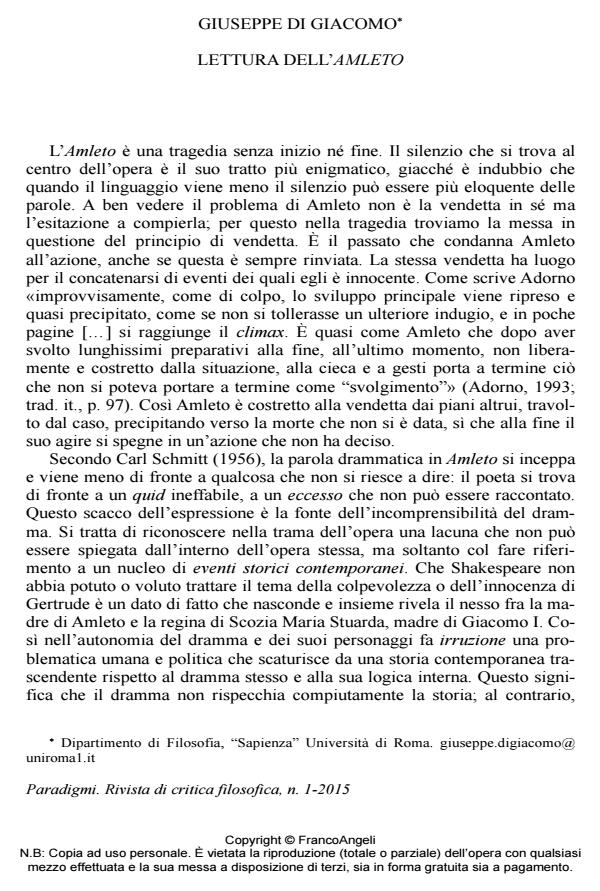A Reading of Hamlet
Journal title PARADIGMI
Author/s Giuseppe Di Giacomo
Publishing Year 2015 Issue 2015/1
Language Italian Pages 16 P. 21-36 File size 69 KB
DOI 10.3280/PARA2015-001003
DOI is like a bar code for intellectual property: to have more infomation
click here
Below, you can see the article first page
If you want to buy this article in PDF format, you can do it, following the instructions to buy download credits

FrancoAngeli is member of Publishers International Linking Association, Inc (PILA), a not-for-profit association which run the CrossRef service enabling links to and from online scholarly content.
Hamlet is a tragedy without beginning or ending. The silence which lies at the centre of the play is its most enigmatic trait, as it is doubtless that, when language fails, silence can be more eloquent than words. On closer inspection, Hamlet’s problem is not revenge in itself but his hesitation to carry it out; this is why the tragedy questions the very principle of revenge. It is the past that condemns Hamlet to action, although the latter is constantly postponed. Revenge takes place because of a chain of events of which he is innocent; thus Hamlet is compelled to take revenge by other people’s plans, is overwhelmed by chance, and falls into a death that he did not give himself; as a consequence, his acting finally extinguishes itself in an action he did not choose. In Hamlet the crime that ignites action happens outside the play, and the focus of attention, in the play itself, lies in the hero’s efforts to do his duty. While in Macbeth we find a hectic rhythm of development of the action, in Hamlet there is no real temporal and chronological development: as Hamlet himself affirms, the time is out of joint and he was born to set it right.
Keywords: Absence of Action, Final Catastrophe, Modernity, Play-within-the play, Silence-Unsayable, Tale-Words.
Giuseppe Di Giacomo, Lettura dell’Amleto in "PARADIGMI" 1/2015, pp 21-36, DOI: 10.3280/PARA2015-001003